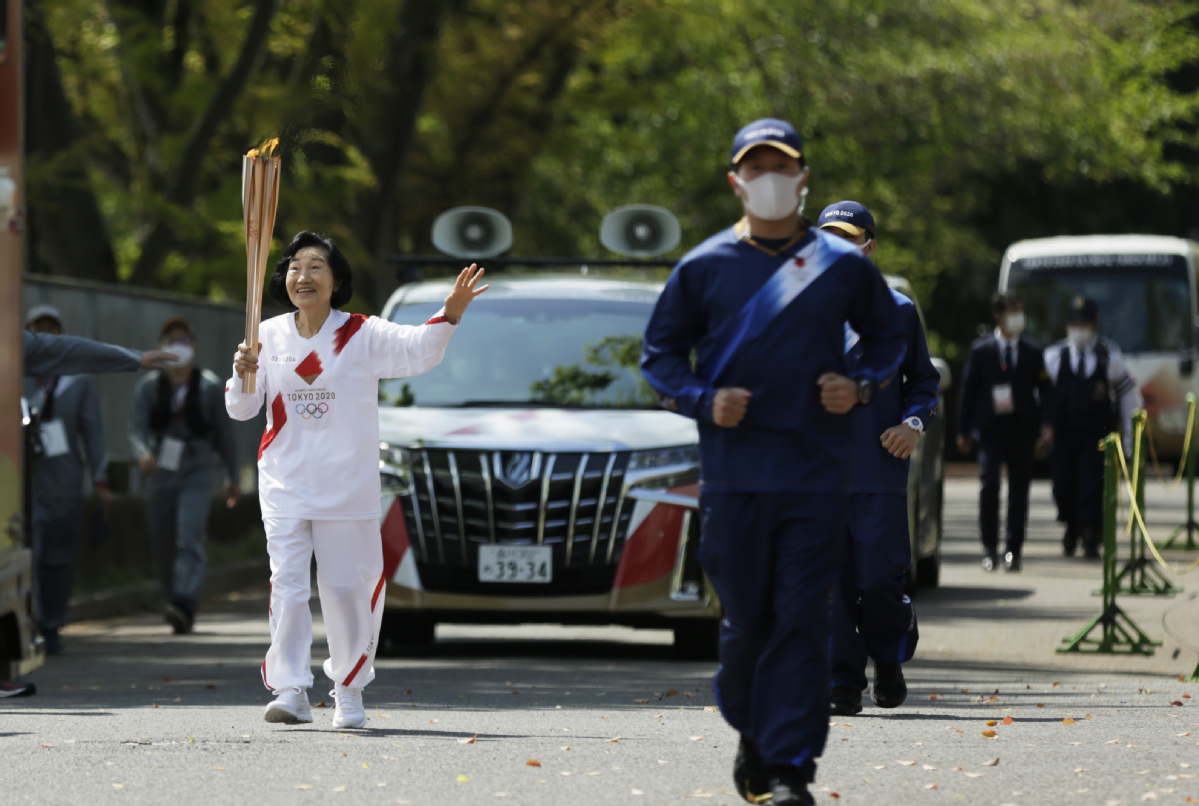Virus may yet kill Tokyo Games, ruling party's No 2 says


TOKYO-A senior Japanese politician said on Thursday that canceling the Tokyo Olympics remains a possibility, as a surge in coronavirus cases renews concerns about the Games with less than 100 days to go.
Toshiro Nikai, the ruling Liberal Democratic Party's No 2 official, said the Olympics must be canceled "without hesitation" if the virus situation is too severe.
Organizers and Olympic officials insist the Games will go ahead safely, but Nikai said on Thursday all options were on the table.
"We need to make a decision depending on the situation at the time," said Nikai, who is the LDP's secretary-general.
The comments were quickly dismissed by an unnamed LDP official who told the Jiji news agency:"The Games will not be canceled."
Taro Kono, the government minister in charge of Japan's vaccine rollout, said even if the Olympics go on, there may be no fans of any kind in the venues.
Nikai's remarks come with fresh worries in Japan about what experts have called a fourth wave of infections. Record numbers of cases have been reported in Osaka in recent days, and the government has been forced to authorize new restrictions just weeks after lifting a state of emergency.
The surge has already forced the Olympic torch relay off public roads in Osaka, and a city in western Japan also announced on Wednesday that it would cancel the public event.
Compounding the problem is the comparatively slow rollout of the vaccine in Japan, which has so far only approved the jab from Pfizer and BioNTech.
Worries over side effects
Elsewhere, efforts to tackle the pandemic have also been dealt a setback with Johnson& Johnson's vaccine reportedly linked to blood clots, shortly after the AstraZeneca jab reported a similar side effect.
Concerns over using the two vaccines have dampened hopes that mass immunizations will lead to a swift exit from the pandemic that has killed nearly 3 million people.
In the United States, a panel of experts ruled the pause on using the J&J vaccine would continue for at least another week so they have time to assess the risk of clots.
Another case of the clotting disorder was reported on Wednesday, bringing the total of US cases to seven-including one death-among the 7.2 million J&J doses administered in the country.
In Denmark, AstraZeneca faced a similar setback as the government said on Wednesday it would stop using it altogether-a European first-despite assurances by the European Medicines Agency and the World Health Organization that side effects outweigh possible risks.
Nevertheless, there was some good news for Pfizer, as the drugmaker announced that 50 million doses that were due to arrive in Europe in late 2021 will instead start arriving as early as this month.
More than 820 million doses have now been administered globally. Demand continues to outstrip supply, and countries are scrambling to secure the much-needed jabs for their people.
The melee over vaccines comes as several countries battle a worrying increase in infections.
In Latin America, Argentina's government will tighten pandemic restrictions in and around the capital Buenos Aires to rein in a sharp spike in cases.
The measures will see schools closed in greater Buenos Aires from Monday, and the suspension of indoor sports, recreational, religious and cultural activities until April 30.
Argentina registered 25,157 new cases on Wednesday, after hitting a record 27,001 cases on Tuesday. The country has seen a total 2.6 million people infected, with 58,542 deaths.
Agencies - Xinhua
































